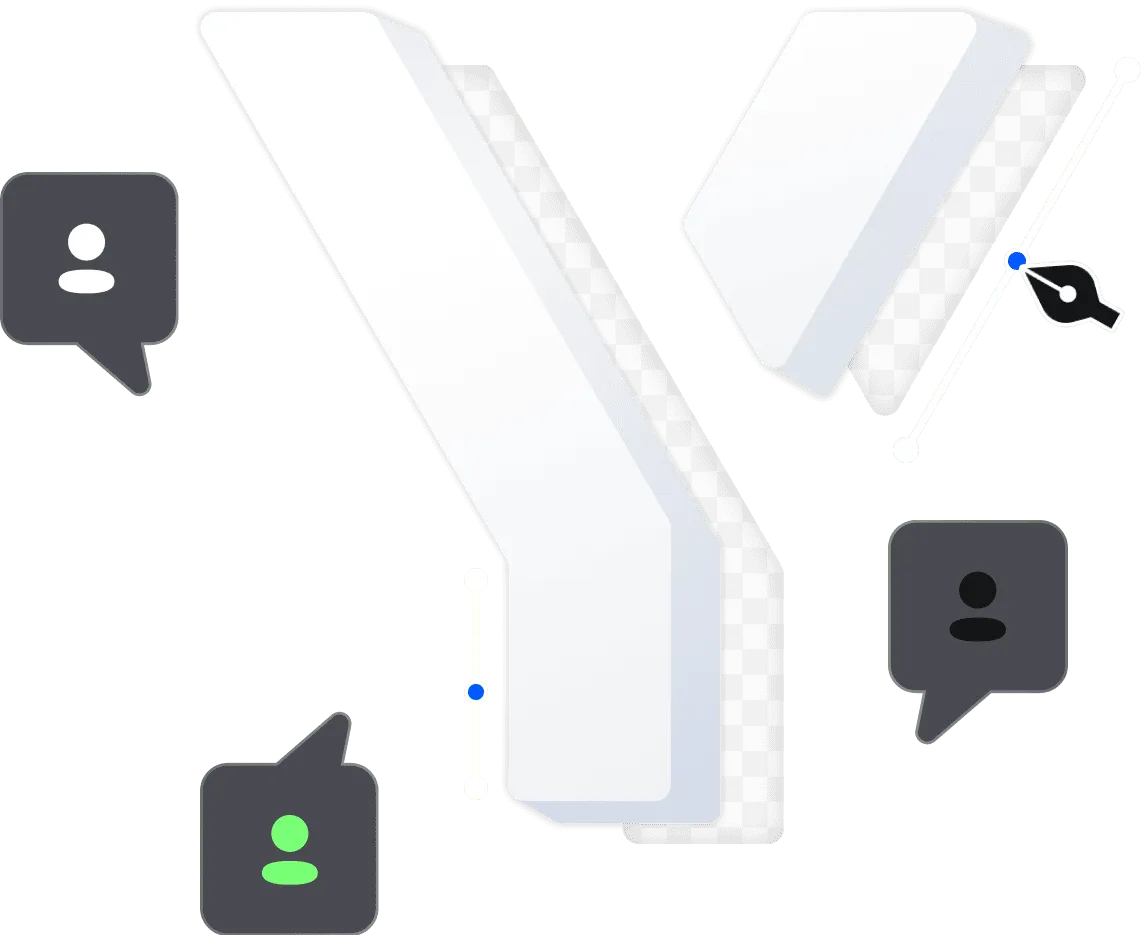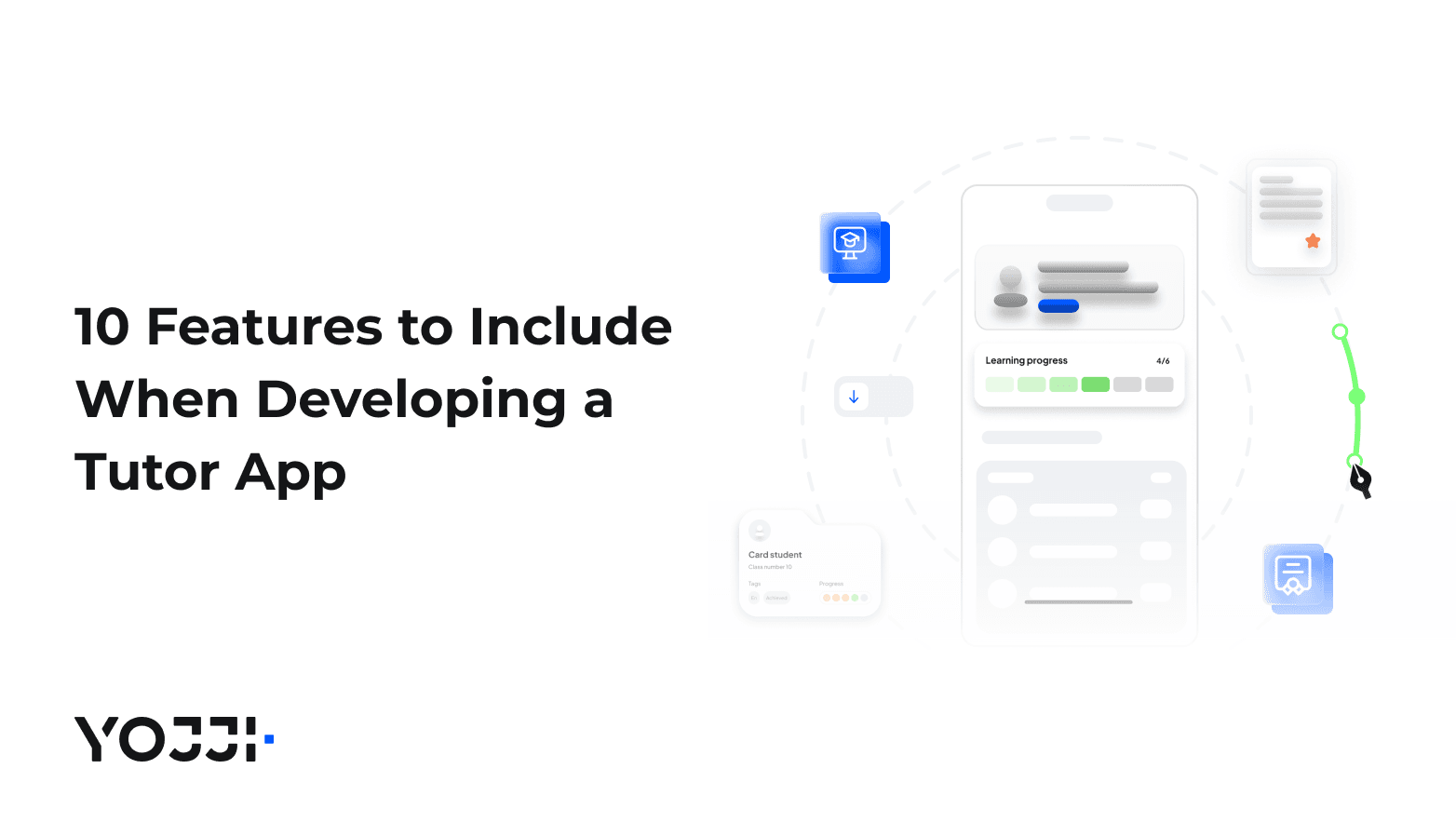Everything You Should Know About Custom CRM Development

CRM is “Customer Relationship Management” and refers to all the ways, approaches, tools, and technologies enterprises use to develop, retain, and acquire customers. In the past, CRM solutions used to be a cost-prohibitive technology used exclusively by large companies. Still, today, these systems have become necessary for businesses of any scale as they provide a complete hold on every department. According to the Grand View Research, CRM is today's fastest-growing software market. It was a $14 billion industry in 2010 and is expected to reach $80 billion by 2025. It has loads of benefits. Customer relationship management improves team effectiveness by enhancing user experience and boosting conversion rates, sales, and productivity.
So, if you have long considered setting up a system for your business, now is the right time. Yojji has a team of specialists who will develop the latest solution for you as soon as possible. This article will explain the main advantages of CRM systems, their types, and key features, and provide a brief guide on developing a CRM platform tailored to your business needs. Read on!
Benefits of Custom CRM Solutions
CRM systems are used by many businesses to attract new clients, make a positive impression, win their loyalty, and retain existing customers. Custom CRM platforms provide many benefits, but we will focus on the main ones.
-
These solutions suit your business needs A custom solution gives you enough flexibility regarding the features you want to include. Based on your sales experience, you can create a package of functionality your company needs.
-
Process automation Custom CRM systems cover specific needs and can automate various processes, including customer support, sales, marketing, and analytics. Thus, workflow automation benefits client retention and saving funds.
-
Customer insight analytics To be on top of the game, you should know your business inside out: identify the bottlenecks and rooms for improvement and assess your strengths. Custom CRM platforms allow you to explore customer insights by offering a combination of features and filters to analyze customer data.
-
Great scalability Business dynamics aren’t static, it changes as your company grows. So, custom solutions allow you to adjust to new demands and modify the system anytime. Therefore, you can proactively react to any transformation, giving you a competitive advantage.

Types of CRM Systems
CRM systems can be divided into the following types depending on the purpose.
- Operational
This type is the most popular solution for organizations in the construction, medical, and financial sectors. It allows automating routine tasks such as marketing, sales, and customer support processes.
Operating platforms often have the following characteristics:
- Lead management
- Contact management
- Sales funnel
- Support service
- Strategic
CRM's main goal is to ensure long-lasting relationships with clients. It collects client information and allows you to organize the workflow to enhance and personalize communication.
- Analytical
An analytical platform collects information about customers from different sources. The advantage is that it provides real-time data. All statistics and analytics data can be used to solve specific problems and launch marketing strategies. The main tools of analytical systems are reports and charts.
- Collaborative
A collaborative platform aims to improve communication and teamwork between departments (marketing, sales, technical support). By enhancing the interaction between branches, the quality of customer service improves.
The Main Features of CRM Systems
The functionality of CRM platforms depends on the business niche and the type of CRM solutions. There are two main groups of platform characteristics: core and optional. Core features are standard for all CRM systems. They include the following:
-
Contact Management This feature stores all contact information (names, emails, social media accounts) in a database.
-
Document Management This feature ensures that you have a centralized hub for important documentation, ensuring that all team members are on the same page. This feature is especially relevant for large teams, as it improves their interaction and boosts customer experience.
-
Pipeline Management With this feature, you keep track of your sales process. You see the relevant status of every lead in the sales funnel so that you can spot the stage where you lose clients.
Optional features aren’t common for CRM systems, and they are tailored to the needs of a specific business. Optional features are the following.
- Analytics This system allows you to receive regular reports (daily, weekly, monthly, quarterly, annually) on team performance and sales (sales geography, sales funnel). Thanks to these reports, you can clearly understand the sales process and fix problems in time.
How to Develop a Custom CRM Solution
After determining the main objectives and challenges to build a project specification and identifying the user roles (employees who will use a CRM platform), you proceed to the three main stages of CRM development. Let’s briefly describe these steps.
- Design
At this stage, a functional design concept, a library of user interface elements, and a prototype are developed and approved.
- Development and QA
After the design and prototype are created, the development phase begins. A project roadmap with deadlines is approved. After that, engineers build the software architecture and start coding. The final step is software testing (e.g., Functional and load testing). After that, the product is presented to the target departments.
- Launch and Monitoring
This stage is time-consuming because product integration consists of several stages. First, the product is integrated with the database installed on users’ devices, and then employees are trained to use the new platform. After a successful launch, the system must be constantly monitored, and based on user experience, effective features and those worth improving are identified. Based on this data, the product is refined and improved.
Frequently asked questions
How much does it cost to develop a CRM system? The final cost depends on many factors, including the project's complexity and the location of the development team. If you want an estimated cost, contact us for more information.
How long does it take to build a CRM solution? Good comes to those who wait. Since building CRMs is complex and requires many resources, building a CRM solution from scratch can take two weeks to an entire year.
How to find a tech partner to build a CRM system from scratch? Check a potential partner’s portfolio, analyze the technical complexity of completed projects, pay attention to industry expertise, and ensure positive customer reviews.
Bottom Line
Today, efficient selling and communication processes are key to establishing long-term, flourishing client relationships. Custom CRM solutions not only support your company's existing processes but also contribute to your business growth by attracting new clients and retaining existing ones. If you want to create a top-notch CRM solution, please contact us.
Looking to hire developers?



